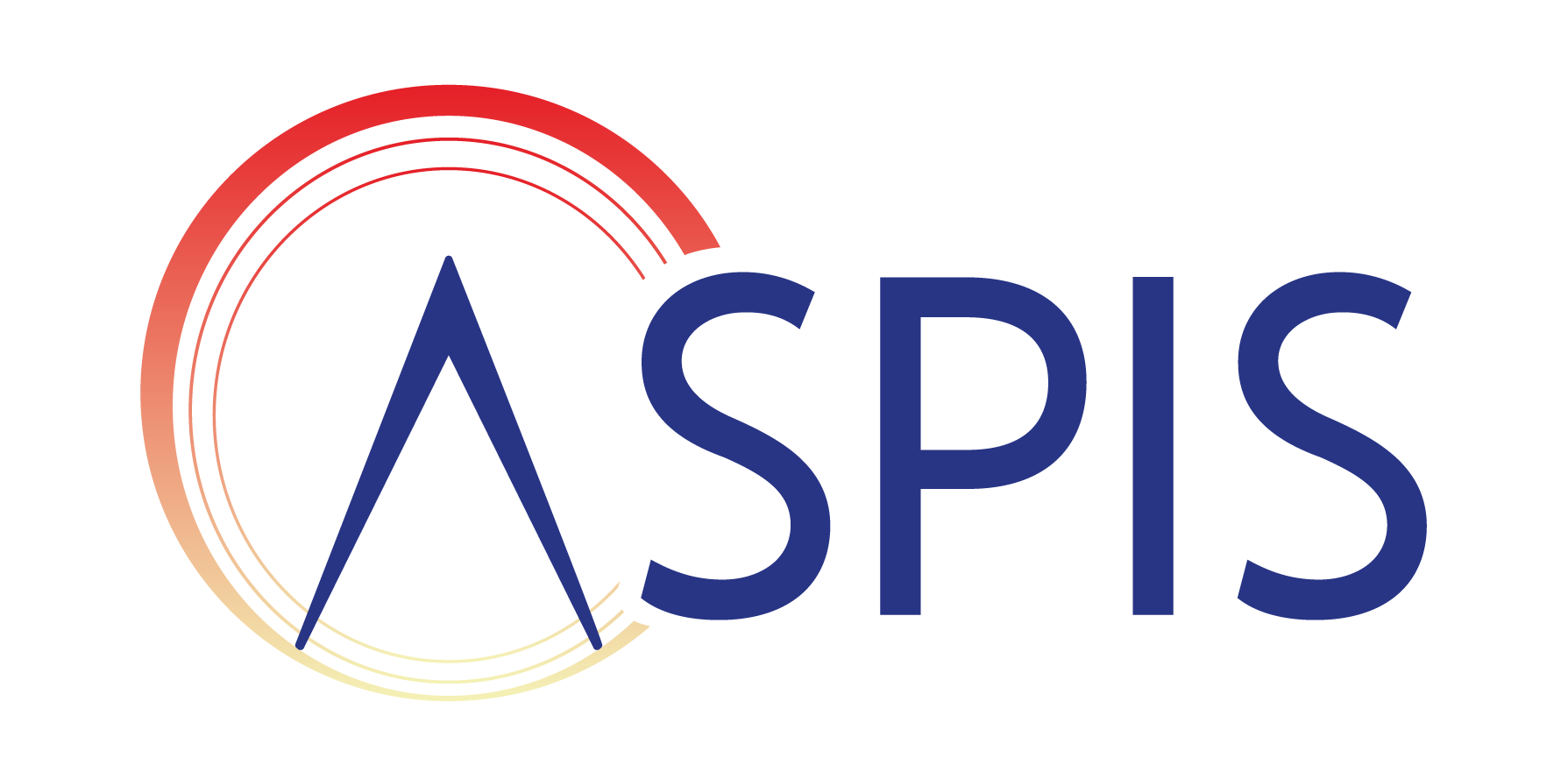The ASPIS Academy recently held a special lunch session at the esteemed ESTIV Congress 2024, showcasing the dynamic environment of this innovative networking platform aimed at empowering early-stage researchers. During this session, young researchers from three ASPIS projects shared insights into their work, fostering effective current and future collaborations.
The ASPIS Academy offers a diverse array of programs to foster the professional careers of aspiring young researchers while advancing the overarching mission and vision of the ASPIS cluster. This joint effort, part of the H2020-funded projects (ONTOX, PrecisionTox, RISK-HUNT3R), is committed to achieving sustainable, animal-free, and reliable chemical risk assessment.
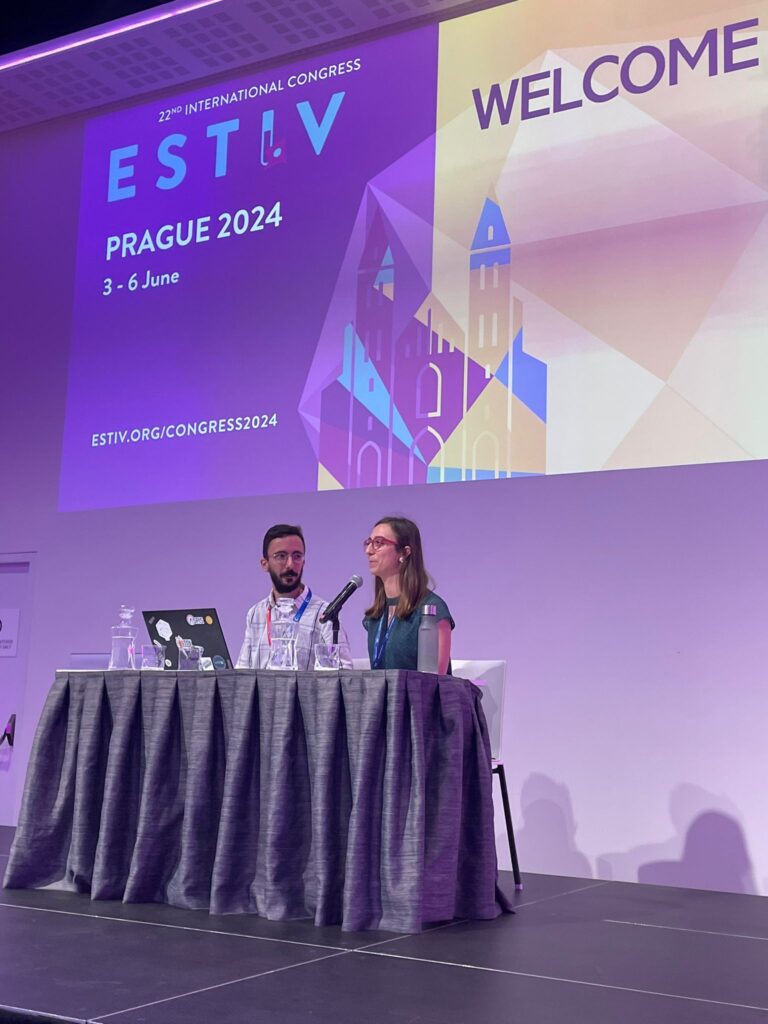
Inaugural session
ASPIS Academy lunch session took place on June 4 during the ESTIV Congress 2024 in Prague, Czech Republic. Titled “Shaping the Future of Chemical Risk Assessment: Insights from ASPIS Academy,” the session highlighted the voices of a new generation of scientists, who are experts in New Approach Methodologies (NAMs) and their applications.
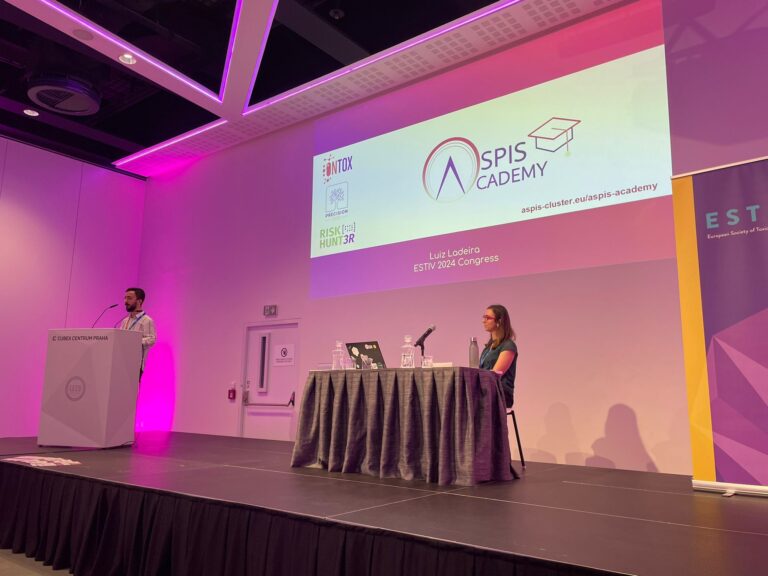
Young chairs from ONTOX, Eliska Kuchovska (IUF – Leibniz Research Institute for Environmental Medicine) and Luiz Ladeira (University of Liège), expressed their satisfaction with the event:
“The ASPIS Academy extends heartfelt thanks to Helena Kandarova and the ESTIV board for allowing us to organise our session at the ESTIV Congress in Prague. We were thrilled to introduce ASPIS Academy activities and showcase three outstanding presentations by our PhD students. This event provided a fantastic opportunity for some of our early-stage researchers to deliver their first presentations at an international conference,” commented Eliska Kuchovska, ASPIS Academy Chair.
Luiz Ladeira added: “ESTIV has always been a favourite among early-stage researchers in toxicology because it offers a platform where they feel heard and supported. We are grateful for this nurturing environment and look forward to future collaborations.”
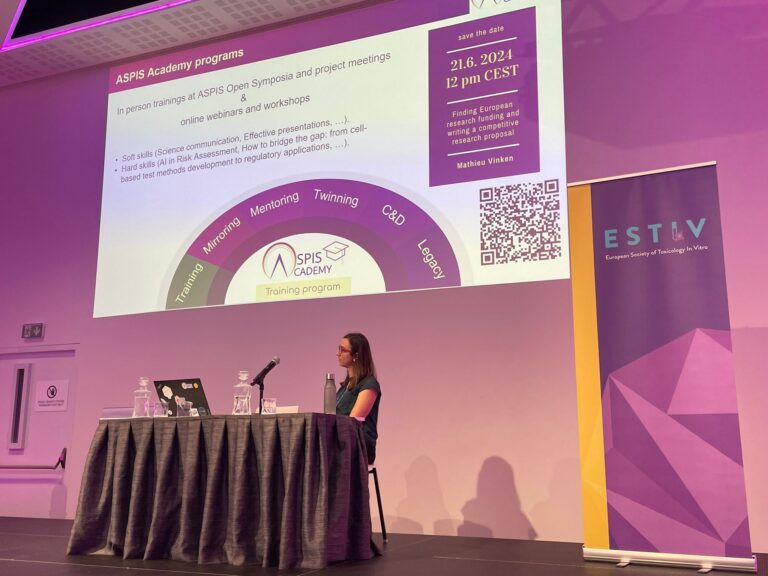
Program Highlights
Following an introductory presentation on the Academy’s transformative potential for young toxicology researchers, representatives from each of the ASPIS projects shared their dedicated work.
The ONTOX representative, Devon Barnes (Utrecht University) explored kidney toxicity using proximal tubule epithelial cells to investigate kidney crystallopathy.
“I thoroughly enjoyed the ESTIV Congress 2024, where I had the privilege of sharing my work with the dynamic audience in attendance at the ASPIS early-stage researchers session. The opportunity to present was truly a highlight, and I am grateful for being provided the platform to connect with like-minded individuals and exchange valuable insights,” commented Devon Barnes.
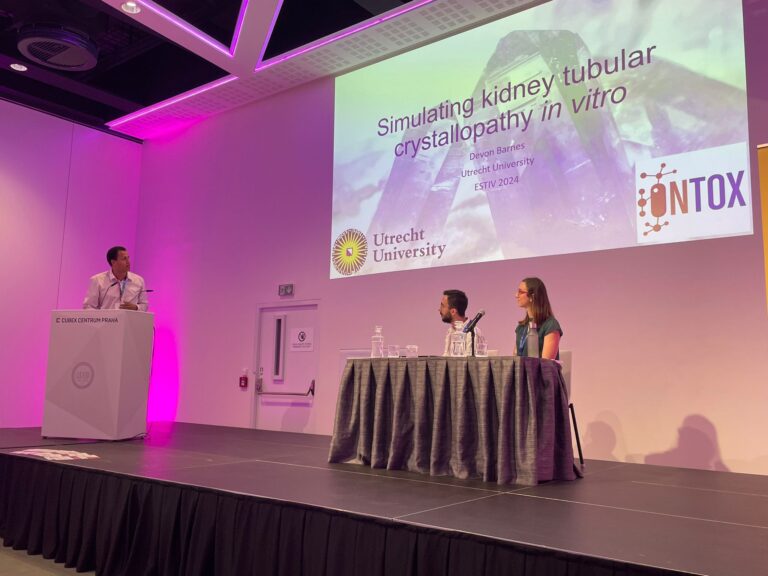
Heeseung Jo (Certara), from the RISK-HUNT3R, focused on liver toxicity, employing innovative in silico approaches to predict adverse outcomes and facilitate in vitro to in vivo extrapolation.
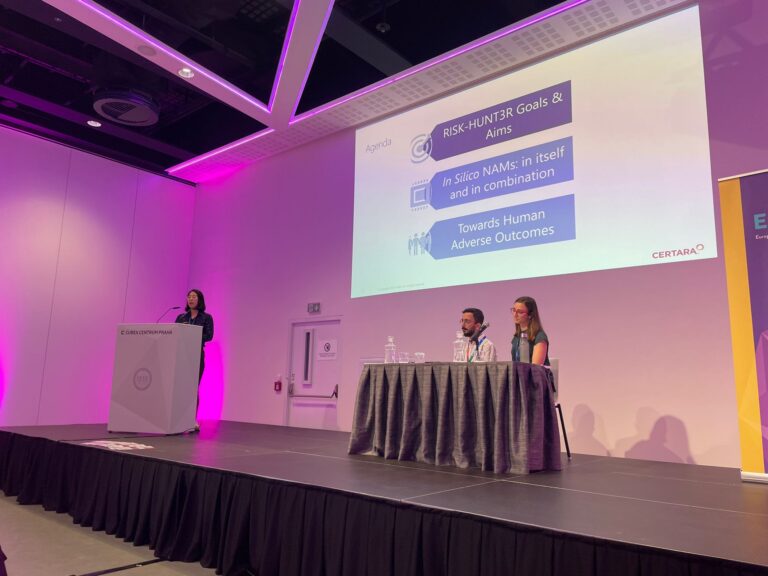
The ASPIS Academy session concluded with Shaleen Glasgow’s PrecisionTox presentation (University of Birmingham). In it, Shaleen Glasgow discussed the evolutionary conservation of gene networks implicated in fatty liver disease through transcriptome comparisons across diverse alternative model species, predicting adverse health impacts on both human populations and the environment.

Key Takeaways
The main takeaways from this debut ASPIS Academy session included:
1. Innovative research:
- Presentations highlighted groundbreaking research by ASPIS Academy early-stage researchers, showcasing the potential impact of NAMs in chemical risk assessment.
2. Collaboration opportunities:
- The session underscored the importance of collaboration among early-stage researchers and senior researchers, fostering a network that encourages shared knowledge and resources.
3. Early-stage researchers (ESR) recognition:
- Young researchers had an excellent opportunity to be in the spotlight and showcase their astounding work. This session highlighted the work done by the speakers and their team of ESR colleagues through ongoing collaborations.
The ASPIS Academy is on the right path to building a viable and robust network of young scientists focused on using NAMs to strengthen modern toxicology without relying on animal methods.
